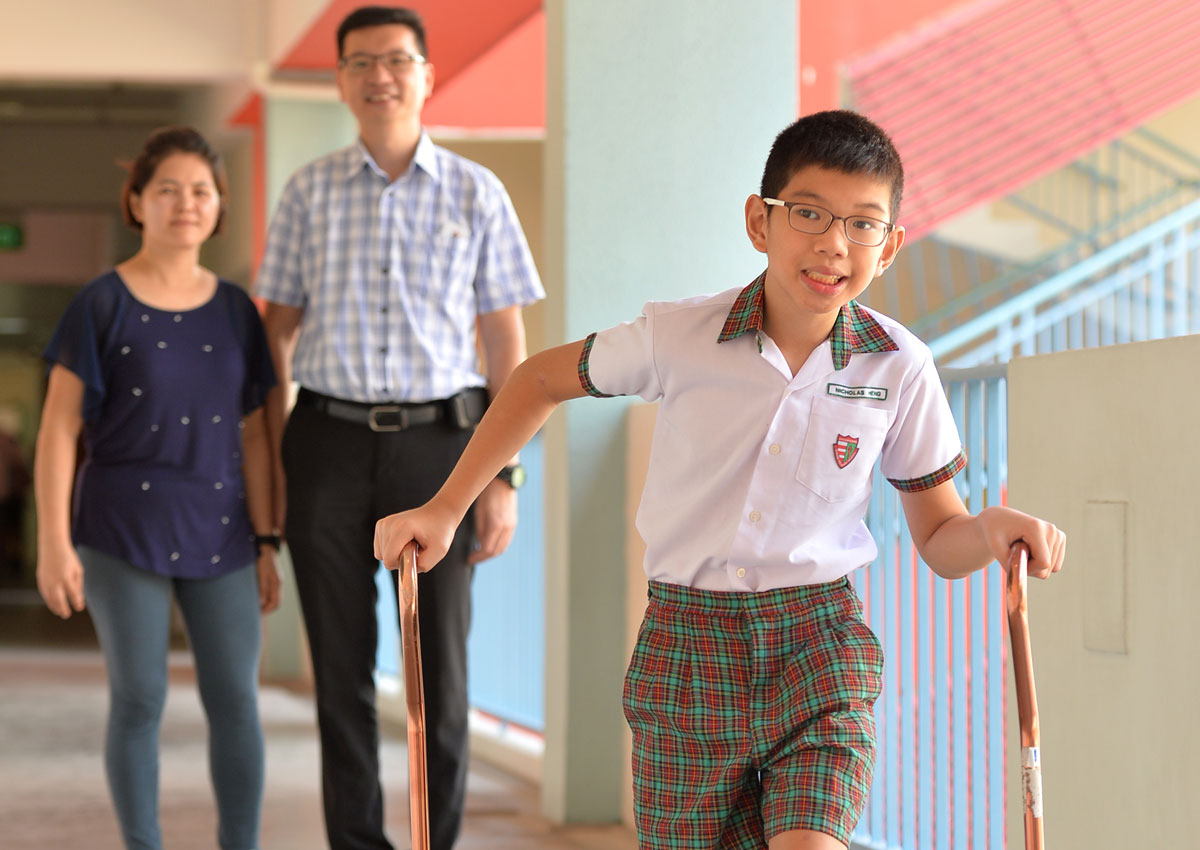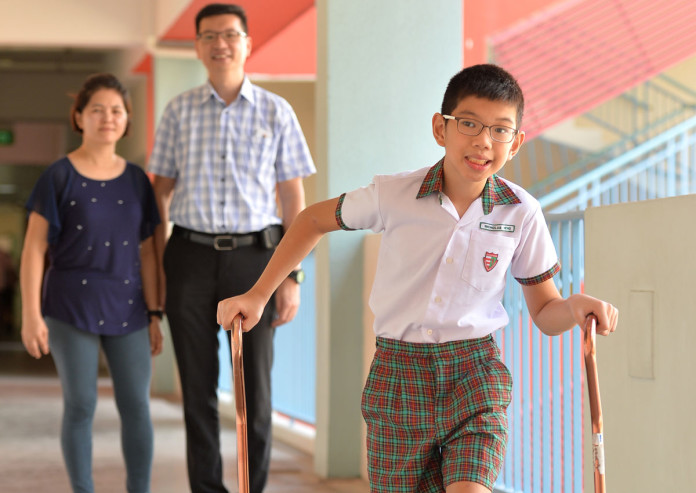Many Singaporean parents are focused on their children’s endless pursuit of degrees.
But Mr David Heng, 42, has a different set of expectations for 12-year-old Nicholas.
Rather than getting into a good school, Mr Heng just hopes for his son to be independent, tenacious and self-sufficient.
Nicholas has cerebral palsy, mild autism and slightly lower cognitive function than his peers.
Cerebral palsy is a condition that affects his motor skills, and he has to move around in a wheelchair. Autism spectrum disorder is a developmental disorder inclusive of a spectrum of skills, symptoms and levels of disability.
Said Mr Heng, an education and career guidance counsellor: “Grades wise, it’s nice to have, but in the long run, being independent and finding purpose in life… that’s what we hope he can really achieve.”
Yesterday morning, before collecting his Primary School Leaving Examination results, the Xishan Primary pupil said: “I am 50 per cent nervous, but I think I can get into a Normal (Academic) stream.”
And he did.
While heartened, Mr Heng told The New Paper: “I won’t compare him with the other kids. But I want him to always try his best, and put in all his effort to do his part.”
It is a goal Mr Heng and his wife, Madam Yee Lai Peng, set for their son shortly after he was diagnosed with cerebral palsy at 18 months.
Mr Heng said: “Sometimes I don’t dare to think about it. Both of us will grow old.
“He has a (younger) brother but it’s very unfair on him too. Of course we hope he will eventually be independent, feed himself and take care of his daily routine.”
To better care for Nicholas, Madam Yee, 39, quit her accounting job after he was born.
She said in Mandarin: “When he was born premature, I knew his health would suffer.
I wanted to be there every step of the way with him until he can be independent.”
Her relationship with Nicholas was initially fraught with misunderstandings.
“When we wanted him to wear his own clothes even though he found it difficult, he got angry.
We insisted because we wanted him to learn to be independent, but he didn’t understand,” she said quietly.
Things only improved slightly when Nicholas grew older and began to understand his parents’ intentions.
Said Madam Yee: “As parents, we came to realise that we also have to explain why we are making him do certain things.
Through helping him learn, we learnt to be patient ourselves as well.” In school, teachers and Nicholas’ peers chipped in.
Xishan Primary’s allied educator Wilson Ting, for instance, spent time tailoring the Physical Education curriculum to make sure Nicholas could move his muscles as much as possible.
“I’ve seen many improvements in him over the years. He used to fall when using crutches and, sometimes, the walker… In Primary 6, not once did he fall while walking,” Mr Ting said.
MOVING UP
Now, even climbing up the stairs while holding the railing for support is no problem for Nicholas, said the allied educator in learning and behavioural science.
“He can basically do it himself. It’s just that someone needs to help him carry his crutches when he’s climbing the stairs,” Mr Ting said.
Only when the school day ends does Nicholas use his wheelchair for his daily commute home.
The progress Nicholas has made is clear, but there is still some way to go, Mr Heng said.
He added that it now takes a lot more persuasion and convincing in negotiating for Nicholas to complete his daily tasks.
Nicholas said he hopes to be a reporter when he grows up because he likes to talk – an area Mr Heng is hoping to help his son develop in.
“Maybe he can do something in journalism, or even be an inspirational speaker… Swimming is also something he likes so we try as much as possible to let him participate in that. Maybe another Paralympian?” he said with a smile.

This article was first published on November 25, 2016.
Get The New Paper for more stories.







